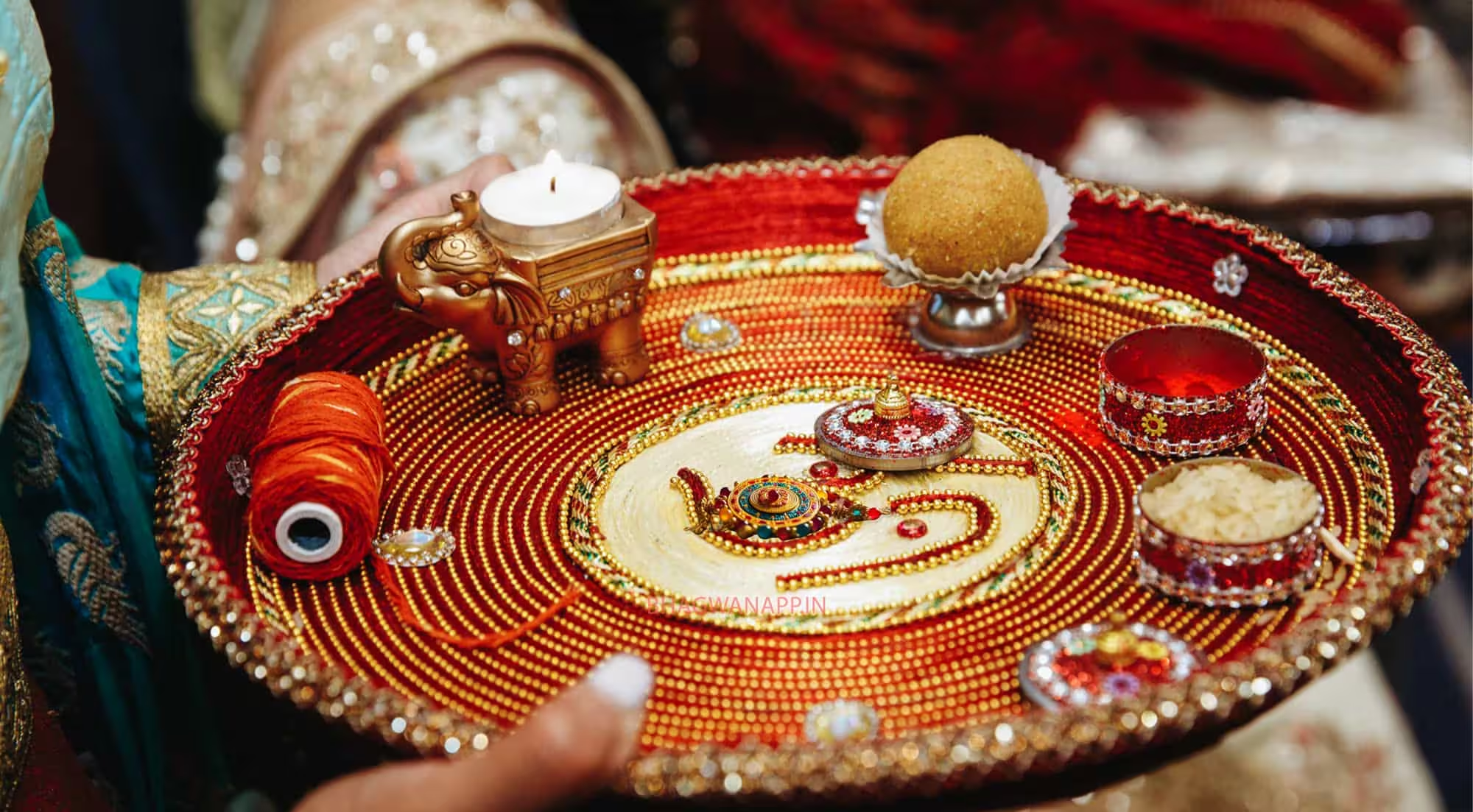
Introduction of Raksha Bandhan:
Raksha Bandhan, a significant festival in Hindu Dharma, holds deep cultural and religious significance. Derived from the Sanskrit words "Raksha" meaning protection and "Bandhan" meaning bond or tie, Raksha Bandhan celebrates the unique bond between brothers and sisters. This joyous occasion is marked by the tying of a sacred thread, known as a "Rakhi," on the wrist of the brother by the sister. Let us delve deeper into the meaning and importance of Raksha Bandhan in Hindu Dharma.
Symbolism of Raksha Bandhan:
Raksha Bandhan represents the love, care, and lifelong commitment between siblings. The Rakhi, typically made of silk or cotton threads adorned with colorful embellishments, is not just a decorative bracelet but a symbol of protection. By tying the Rakhi, the sister prays for the well-being and safety of her brother, while the brother pledges to protect and support his sister throughout her life.
Historical and Mythological Significance:
Raksha Bandhan finds its roots in various historical and mythological narratives, each adding depth to its significance. One popular legend revolves around the bond between Lord Krishna and Draupadi, the wife of the Pandavas. When Draupadi tore her saree during a time of distress, Lord Krishna provided her with an infinite length of cloth to protect her honor. In return, Draupadi tied a Rakhi on Krishna's wrist, signifying their sacred bond.
Another prominent tale recounts the story of Queen Karnavati of Chittor, who sent a Rakhi to Emperor Humayun, seeking his protection against an impending attack. Touched by her gesture, Humayun swiftly responded and came to her rescue, upholding the spirit of Raksha Bandhan.
Rituals and Customs:
Raksha Bandhan is celebrated with great enthusiasm and follows a set of rituals and customs. On this day, brothers and sisters come together, regardless of age or distance, to exchange love and blessings. The ceremony begins with the sister performing an aarti (a ritual of waving a lit lamp) around her brother, followed by applying a tilak (a mark) on his forehead. She then ties the Rakhi on his wrist, symbolizing her love, protection, and prayers for his well-being. In return, the brother presents gifts or money to express his gratitude and promises to stand by his sister.
Celebration:
Raksha Bandhan is not merely a familial affair; it is celebrated with zeal and fervor across the nation. Families adorn themselves in traditional attire, and sisters prepare exquisite Rakhis with great care and creativity. The markets brim with colorful Rakhis, sweets, and gifts, adding to the festive spirit. Alongside the exchange of Rakhis, families gather to indulge in delectable feasts, exchange sweets, and engage in joyous conversations.
Essence of Raksha Bandhan:
While Raksha Bandhan is deeply rooted in Hindu traditions, its essence extends beyond religious boundaries. It is a celebration of love, trust, and protection that transcends caste, creed, and gender. In contemporary times, Raksha Bandhan has expanded its scope to include celebrating the bond between friends, neighbors, and even colleagues, emphasizing the universal significance of these relationships.
Raksha Bandhan, a festival of love, protection, and harmony, holds a special place in Hindu Dharma. It beautifully encapsulates the bond between brothers and sisters, emphasizing the values of care, respect, and lifelong support. As we celebrate Raksha Bandhan, let us cherish and honor this timeless tradition that strengthens the ties of love and unity among family members and beyond.